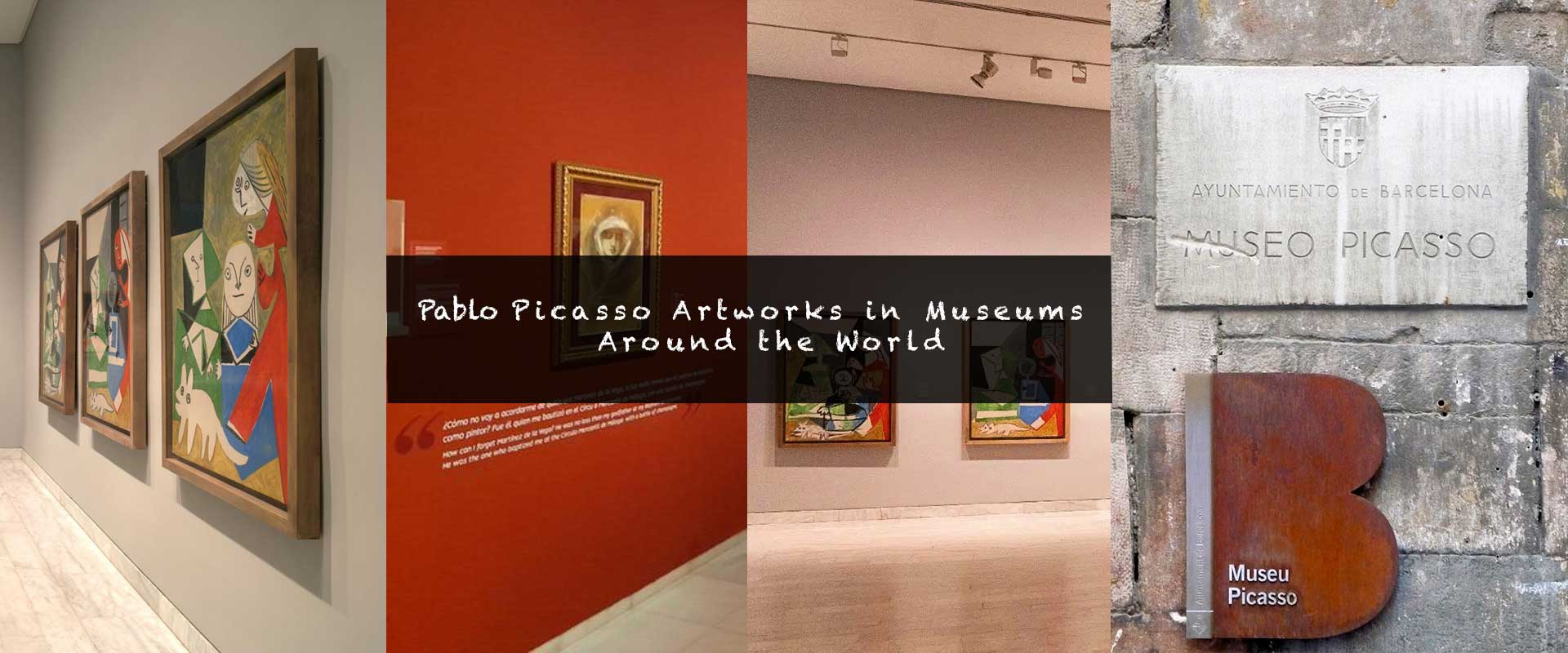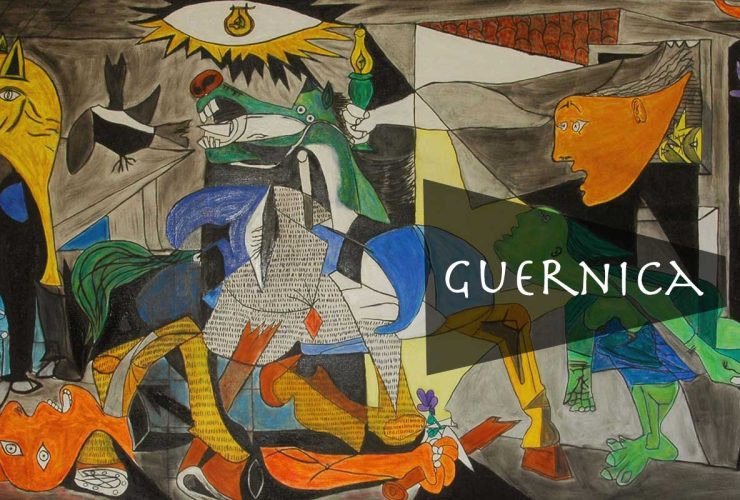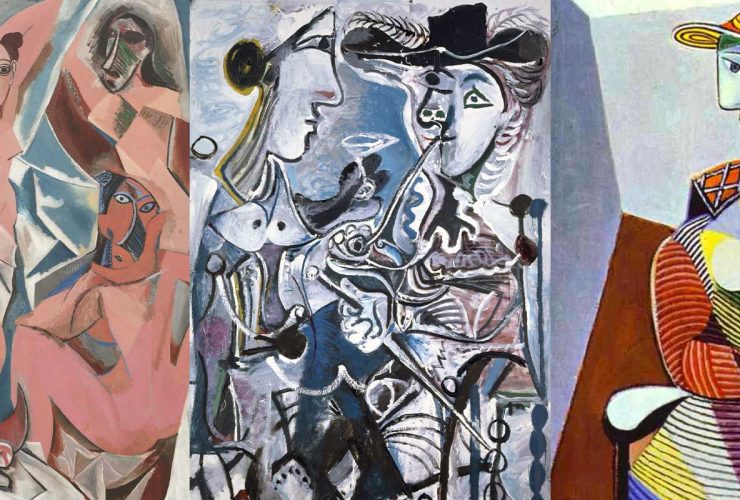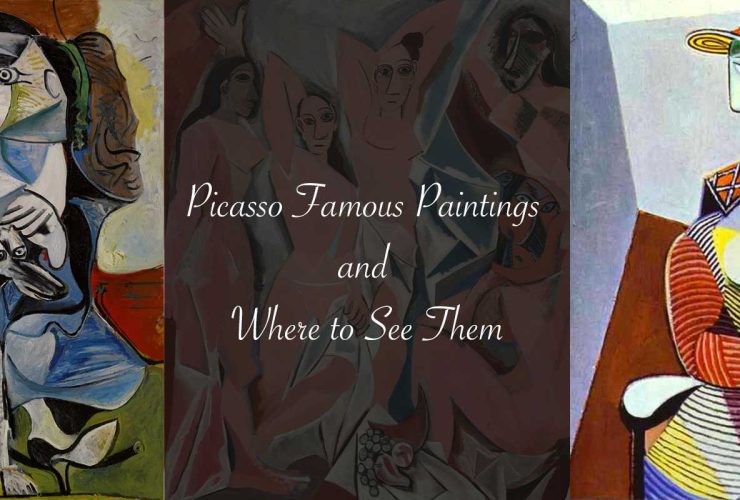Pablo Picasso artworks are among the most celebrated and widely exhibited in the world. From Spain to the United States, from France to Japan, his creations fill the halls of major institutions. Whether it’s his early Blue Period canvases, revolutionary Cubist paintings, or the monumental Guernica, Picasso’s works allow us to trace the story of modern art itself. To understand his global reach, let’s explore where his masterpieces can be found today and how museums continue to preserve his legacy.
Picasso Artworks in Spain
Museu Picasso, Barcelona
The Museu Picasso in Barcelona houses one of the largest collections of Picasso’s early works, with over 4,000 pieces. The museum traces his artistic development from his student days to his Blue and Rose Periods. Highlights include his interpretation of Velázquez’s Las Meninas, which reveals his playful engagement with Spanish tradition.
As highlighted in Picasso Barcelona Spain – Tracing the Artist’s Steps Through the City, this museum captures the formative years that defined Picasso’s artistic voice.
Museo Picasso Málaga
Located in his birthplace, Málaga’s Museo Picasso offers a comprehensive view of his career, from early sketches to later ceramics. It emphasizes his roots in Andalusian culture, showing how Spanish traditions influenced his lifelong creativity.
Museo Reina Sofía, Madrid
Perhaps the most famous Picasso artwork, Guernica, dominates the Museo Reina Sofía in Madrid. This monumental anti-war painting draws millions of visitors each year. Surrounding it are preparatory sketches and related works like Weeping Woman, deepening the context of its creation.
The story of this masterpiece’s symbolism and political power is further explored in Guernica: Picasso’s Powerful Anti-War Masterpiece Explained.
Picasso Artworks in France
Musée Picasso, Paris
Housed in the Hôtel Salé, the Musée Picasso Paris preserves thousands of works spanning his entire career. From Les Demoiselles d’Avignon sketches to late ceramics, it reflects the breadth of his experimentation. Paris was where Picasso co-founded Cubism, making this museum an essential stop for understanding his innovations.
Centre Pompidou, Paris
The Centre Pompidou also showcases Picasso’s contributions to modern art. Its collection emphasizes his Cubist and Surrealist explorations, placing him alongside other modern masters.
Picasso Artworks in the United States
Museum of Modern Art (MoMA), New York
MoMA boasts one of Picasso’s most revolutionary works: Les Demoiselles d’Avignon. This painting shattered centuries of tradition and announced the arrival of Cubism. Alongside this, the museum holds multiple Cubist still lifes and works that demonstrate his influence on modernism.
Art Institute of Chicago
The Art Institute of Chicago houses key works from his Blue Period and Cubist experiments. It shows Picasso’s journey from realism to abstraction.
Guggenheim Museum, New York
The Guggenheim frequently exhibits Picasso in its rotating displays of modern art, emphasizing his role as a bridge between classical tradition and radical innovation.
Picasso Artworks in Other Global Museums
Tate Modern, London
Tate Modern presents a strong selection of Picasso’s works, including Weeping Woman. This painting, created the same year as Guernica, conveys grief and personal anguish while connecting to Spain’s larger political suffering.
Hermitage Museum, St. Petersburg
The Hermitage houses Picasso’s Cubist and Neoclassical works, reflecting his stylistic shifts over the decades. Its collection shows how his influence extended into Eastern Europe.
Pushkin Museum, Moscow
The Pushkin Museum owns a remarkable set of Picasso’s Cubist works, underscoring his reach into the Russian avant-garde.
National Gallery of Victoria, Melbourne
Even in Australia, Picasso’s presence is strong, with major pieces displayed at the National Gallery of Victoria.
Museums in Japan
Institutions such as the National Museum of Western Art in Tokyo feature Picasso’s paintings and prints, confirming his global appeal.
Comparison of Picasso Artworks in Museums
| Museum | Location | Highlighted Work | Significance |
|---|---|---|---|
| Museu Picasso | Barcelona, Spain | Las Meninas series | Early works, reinterpretation of tradition |
| Museo Reina Sofía | Madrid, Spain | Guernica | Universal anti-war symbol |
| Musée Picasso | Paris, France | Wide career collection | Comprehensive view of Picasso’s legacy |
| MoMA | New York, USA | Les Demoiselles d’Avignon | Birth of Cubism |
| Tate Modern | London, UK | Weeping Woman | Companion to Guernica |
| Hermitage Museum | St. Petersburg, Russia | Cubist works | Influence in Eastern Europe |
This table underscores how Pablo Picasso artworks are spread across the globe, ensuring that his influence remains universal.
Why Picasso’s Art Is So Widely Collected
- Prolific Output: Picasso produced over 20,000 works in his lifetime
- Stylistic Variety: From Blue Period realism to Cubist abstraction and political symbolism
- Historical Significance: His works capture major cultural and political events of the 20th century
- Universal Appeal: Themes of suffering, hope, love, and reinvention resonate across cultures
As noted in Pablo Picasso Art: How He Shaped the 20th Century, his career was one of constant transformation, ensuring museums everywhere want to display his genius.
Experiencing Picasso Beyond Museums
For art enthusiasts who wish to bring his vision into their personal spaces, curated collections like Pablo Picasso Wall Art Prints offer a way to enjoy reproductions of his most iconic works. These prints highlight the genius that continues to inspire audiences worldwide.
Conclusion
Pablo Picasso artworks are displayed in museums across every continent, making him one of the most globally recognized artists in history. From the emotional intensity of The Old Guitarist in Chicago to the revolutionary Les Demoiselles d’Avignon in New York, and from Guernica in Madrid to Weeping Woman in London, his works capture both personal emotion and universal struggle. To walk through any major modern art museum is to encounter Picasso, proving his enduring power to define and challenge what art can be.
FAQs on Pablo Picasso Artworks in Museums
Where is Picasso’s Guernica displayed?
It is housed in Madrid’s Museo Reina Sofía, one of Spain’s most important modern art museums.
Which museum has the largest Picasso collection?
The Museu Picasso in Barcelona holds over 4,000 works, focusing on his early development and experiments.
What Picasso artwork is at MoMA in New York?
MoMA houses Les Demoiselles d’Avignon, one of the most groundbreaking works in modern art.
Are Picasso artworks found outside Europe and the US?
Yes, his works are exhibited worldwide, including in Australia, Japan, and Russia.
Why are Picasso’s artworks so widespread?
Picasso created over 20,000 works and influenced nearly every major art movement, making his art essential for museums globally.





